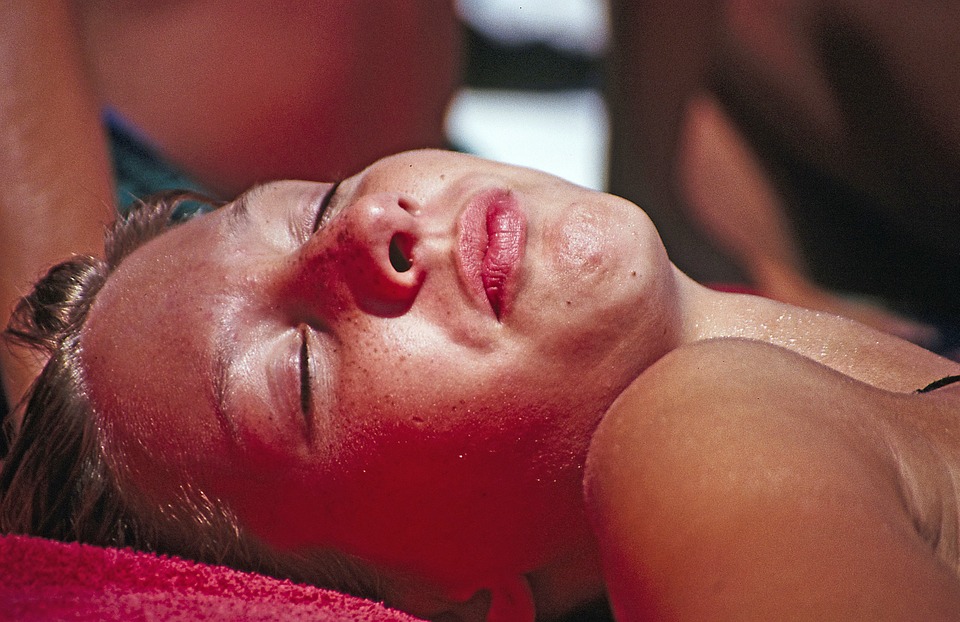Managing Menopause and Perimenopause
Menopause is a natural biological process that marks the end of a woman’s menstrual cycles. Menopause is determined after 12 months of one’s last period (menstruation). Menopause doesn’t happen overnight. In fact, it is a process which can last several months to years. This transition period leading to menopause is called Perimenopause. Women usually start experiencing symptoms in her mid-40s or 50s.
Perimenopause affects each woman uniquely and in various ways. During perimenopause, the body’s production of estrogen (a female hormone) made by the ovaries varies greatly. As levels of estrogen decrease, a woman could have various symptoms.
Signs and Symptoms
Most common symptoms that women report during their perimenopause are:
- Change in the pattern of period
- Worse premenstrual syndrome
- Hot flashes
- Loss of bladder control (urinary incontinence)
- Poorer quality of sleep and night sweats
- Mood changes
- Vaginal health and sexuality (vaginal dryness; discomfort during sex)
- Lower sex drive
- Aches and pains, headaches
- Heart palpitations
- Fatigue
- Depression
- Weight gain
- Hair loss
- Vaginal/vulvar itching.
Perimenopause varies greatly from one woman to the next. The average duration is three to four years, although it can last just a few months or extend as long as a decade. Some women feel buffeted by hot flashes and wiped out by heavy periods; many have no bothersome symptoms.
Some of the symptoms may still persist after menopause (postmenopause).
Treating Perimenopause and Menopause
Many women experience mild symptoms that can be treated by lifestyle changes such as avoiding caffeine or carrying a portable fan. Some women don’t require any treatment at all, but for others, symptoms can be more severe.
Deciding whether and how to treat the symptoms can be complicated and personal. Discuss your symptoms, family and medical history, and preferences with your doctor. No matter what you decide, see your doctor every year to talk about your treatment plan and discuss any changes you want to make.
Many symptoms will go away over time. But if they’re causing problems, treatments can help you feel better.
At-home solutions
There are some at-home remedies to relieve symptoms, you can:
- Practice weight loss to reduce hot flashes and night sweats and improve energy level
- Eat a plenty of nutrients-filled fruits, vegetables, whole grains, lean protein and healthy fats
- Perform weight-bearing exercises like walking, hiking or strength training
- Improve sleep quality by avoiding electronic devices and doing relaxing activities before bed
- Limit alcohol and caffeine
- Quit smoking
- Practice meditation or other stress management techniques
Medical therapies
More severe symptoms can be taken care of through medical treatments, which include:
- Hormone replacement therapy (HRT): also called menopausal hormone therapy by taking medications to replace the hormones that your body isn’t making anymore. Certain drugs or combinations can help with certain symptoms, but they can also put you at higher risk of health problems like heart disease or breast cancer
- Topical hormone therapy: an estrogen cream, insert, or gel that you put in your vagina to help with dryness
- Non-hormone medications such as paroxetine to ease depression
- Women’s health solutions such as Viveve
While hormone therapies can ease some symptoms, they may produce other health risks. Medications have to be used consistently and persistently in order to bring benefits, and the benefits may be temporary or don’t last long.
How Viveve at Medical Spa Club helps you manage some symptoms
For ladies having problems such as loss of bladder control, vaginal dryness and loss of libido, we have a clinically-proven option that keeps you away from serious risks and side effects. In our assessment, Viveve is effective in addressing certain symptoms such as loss of bladder control, vaginal dryness and loss of libido.
- Viveve can stop urine leakage when you laugh, cough, sneeze or work out.
- Viveve can help you regain arousal and orgasm during sexual intercourse.
- Viveve can also improve lubrication, easing vaginal dryness that causes discomfort.
Viveve is a non-surgical radiofrequency treatment that rebuilds vaginal tissues. During treatment, a small tip is inserted just inside the vaginal opening and is rotated while it alternately cools the surface and heats the soft tissue beneath. This generates new collagen, providing structure and strength to decrease laxity and restore sensation. The Viveve treatment effectively improves orgasm, lubrication and arousal and provides support to the urethra (bladder opening). A single hour session will bring you sustained results for 12 months. It is safe and comfortable, respectable and discreet.
Restore your vigour and vitality today
While it is impossible to stop Menopause from happening, there are ways to minimize the impact of certain symptoms. Viveve is one of the viable and clinically-proven treatments other than wearing pads and having surgery or hormonal therapies and medications that may damage your health. Let us help you manage some of your menopausal symptoms so you can start enjoying the activities you love and not worrying about the increased health risks some procedures bring. Schedule a consultation with our doctor today to discuss your needs and concerns.
Alternatively, you can reach us at 604-284-5501 for any inquiry. We look forward to helping you every step of the way.





